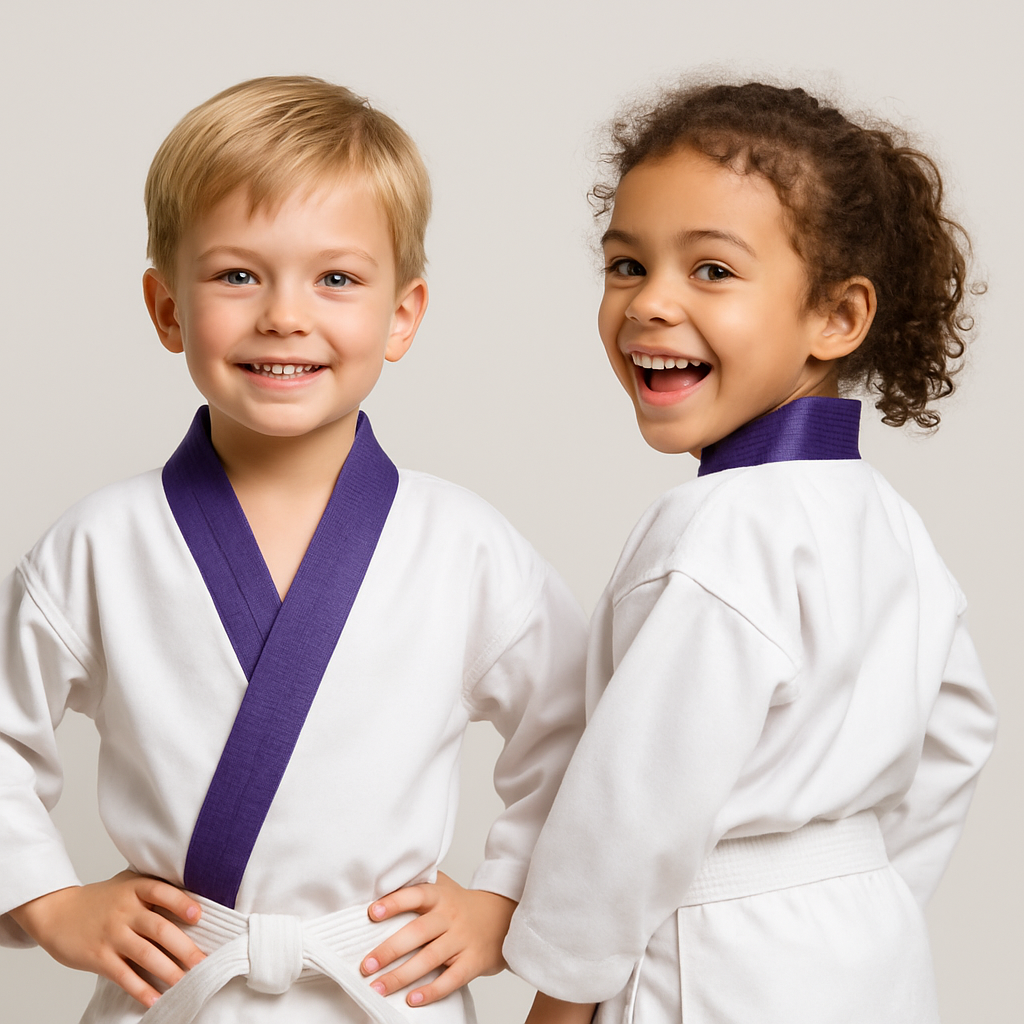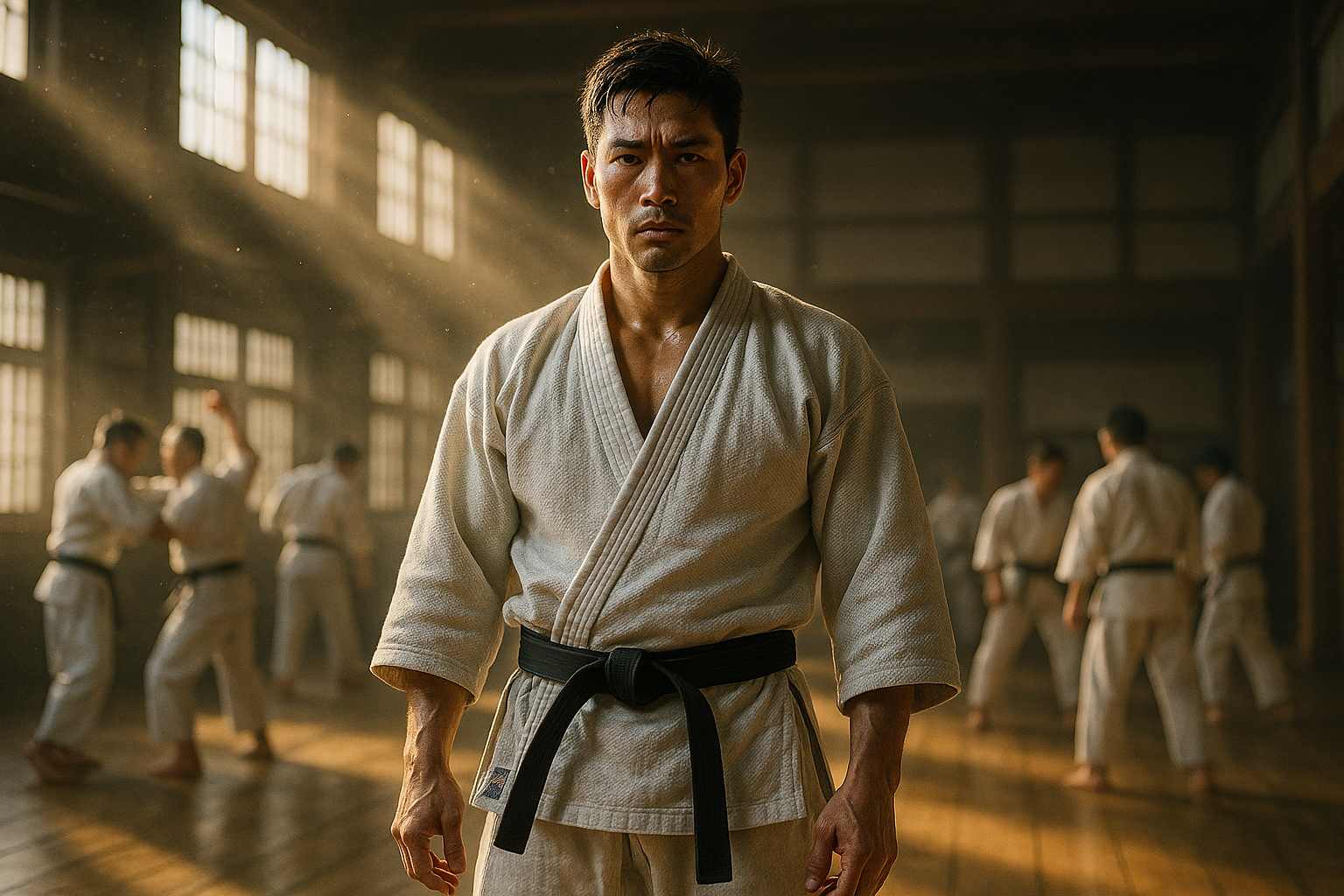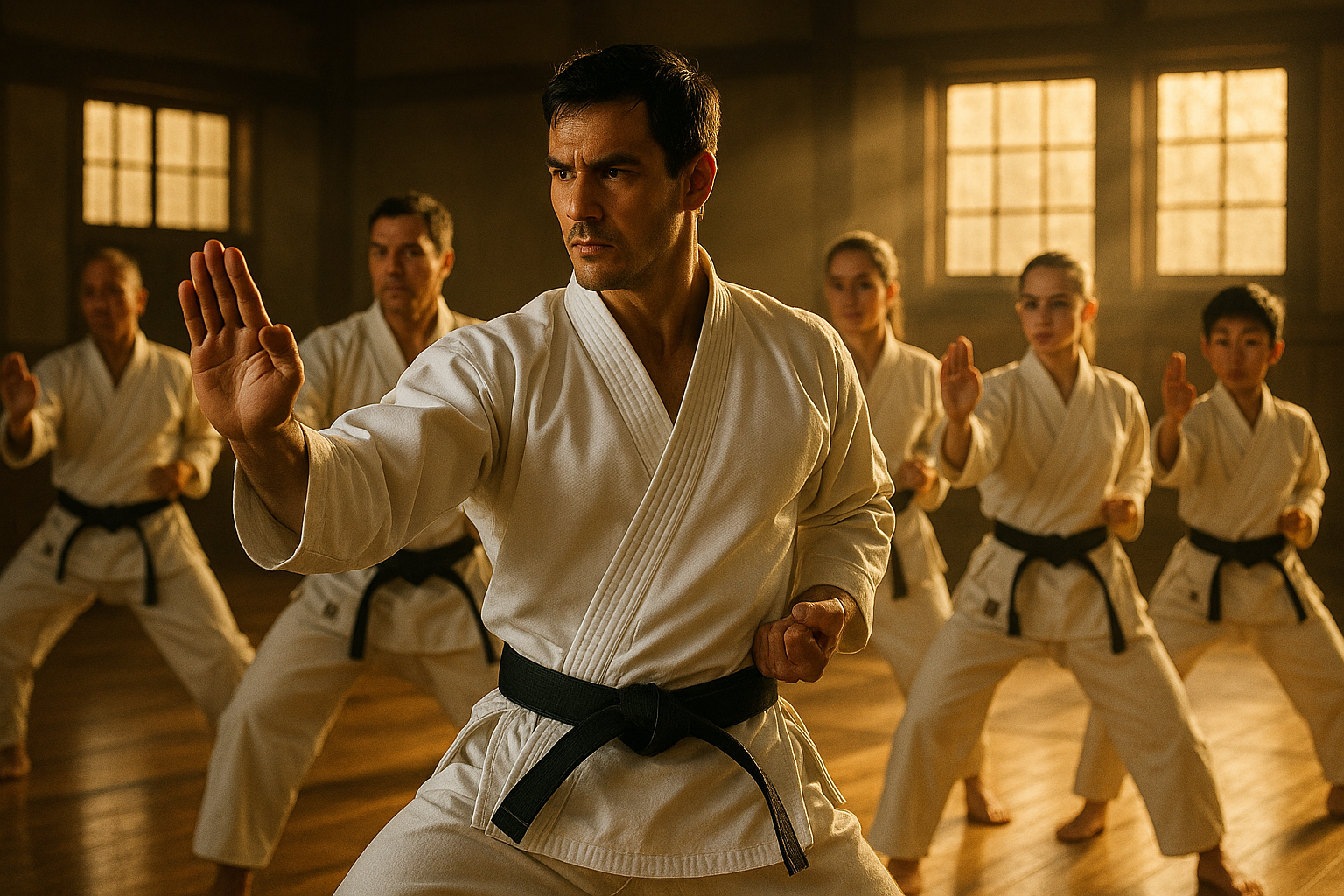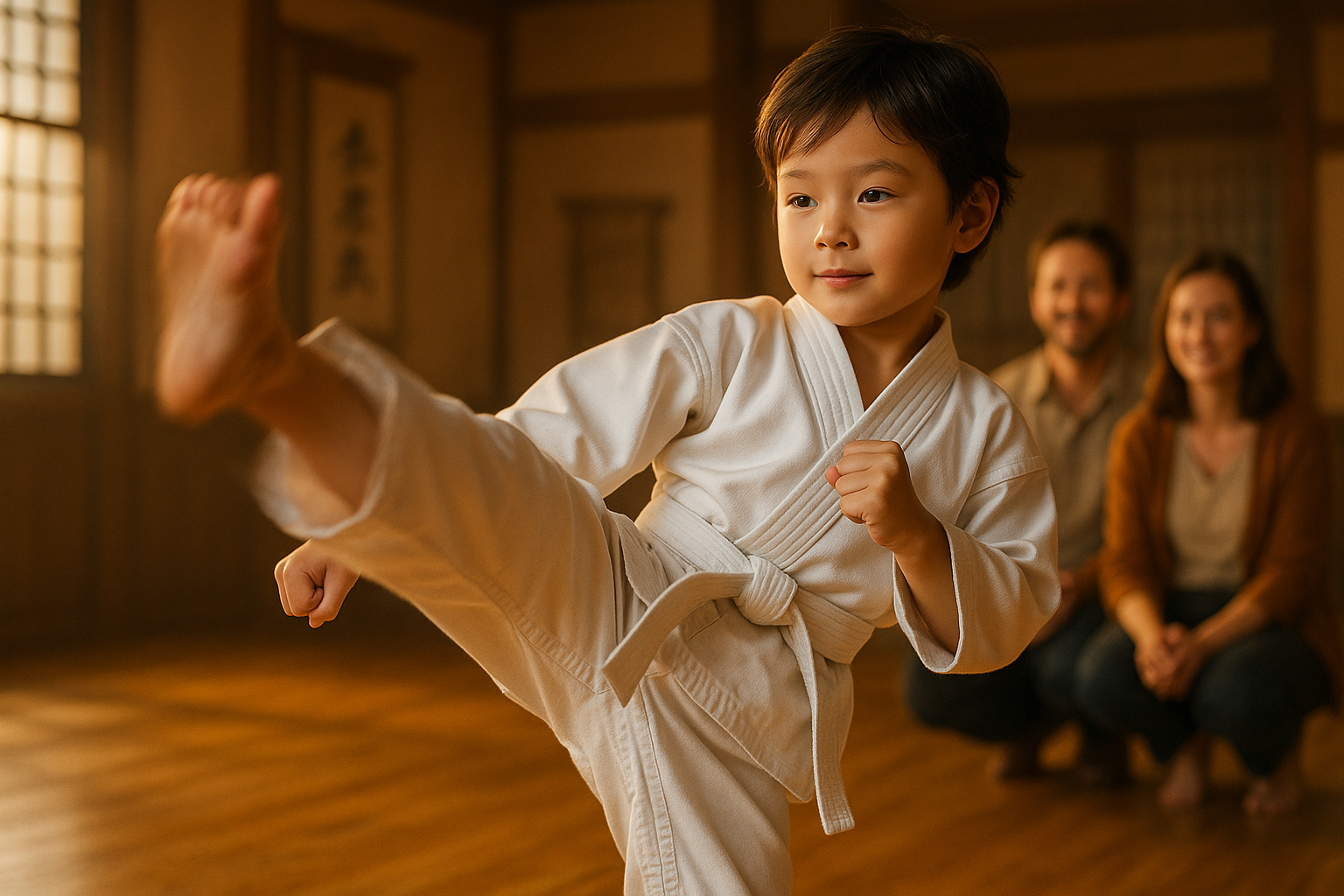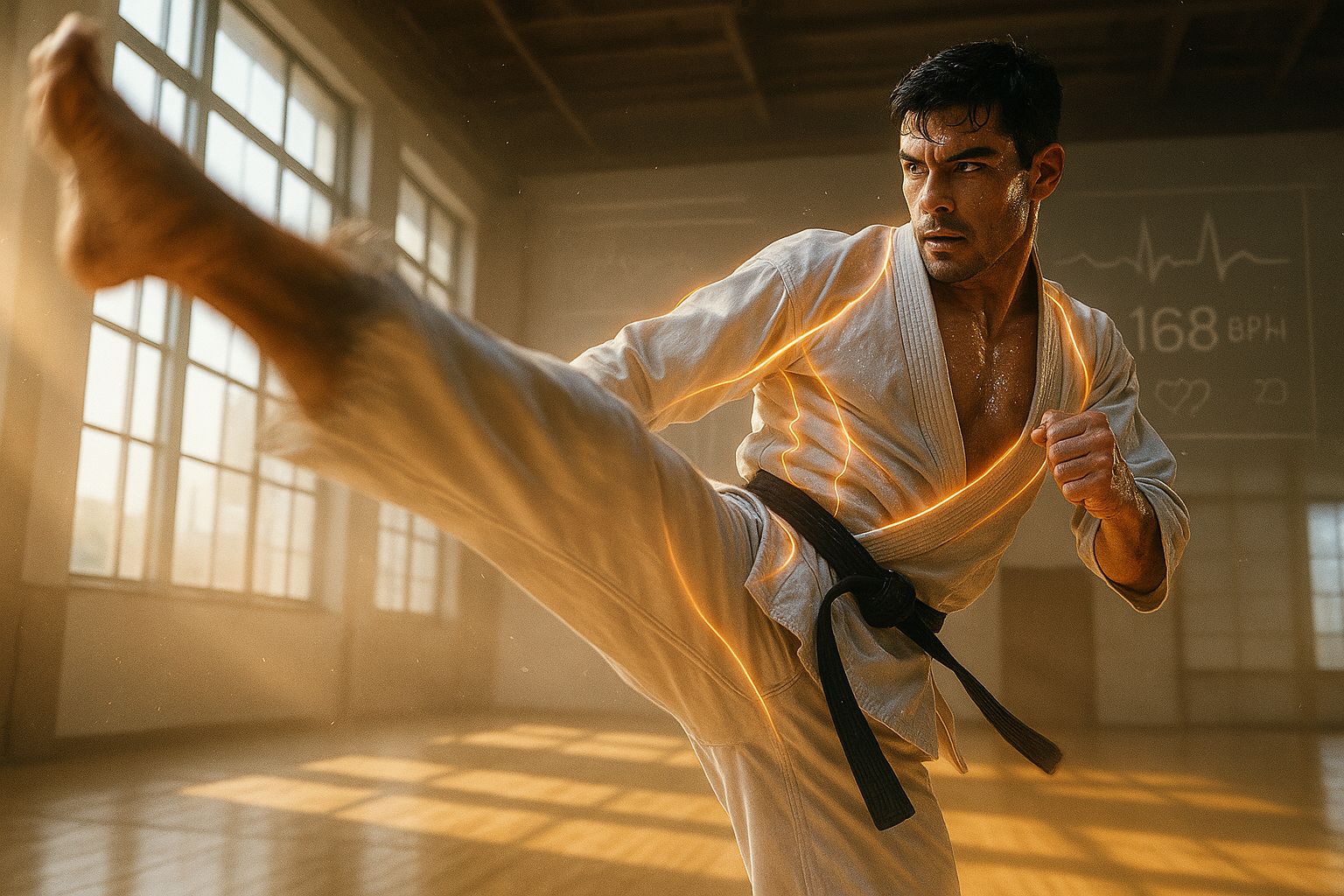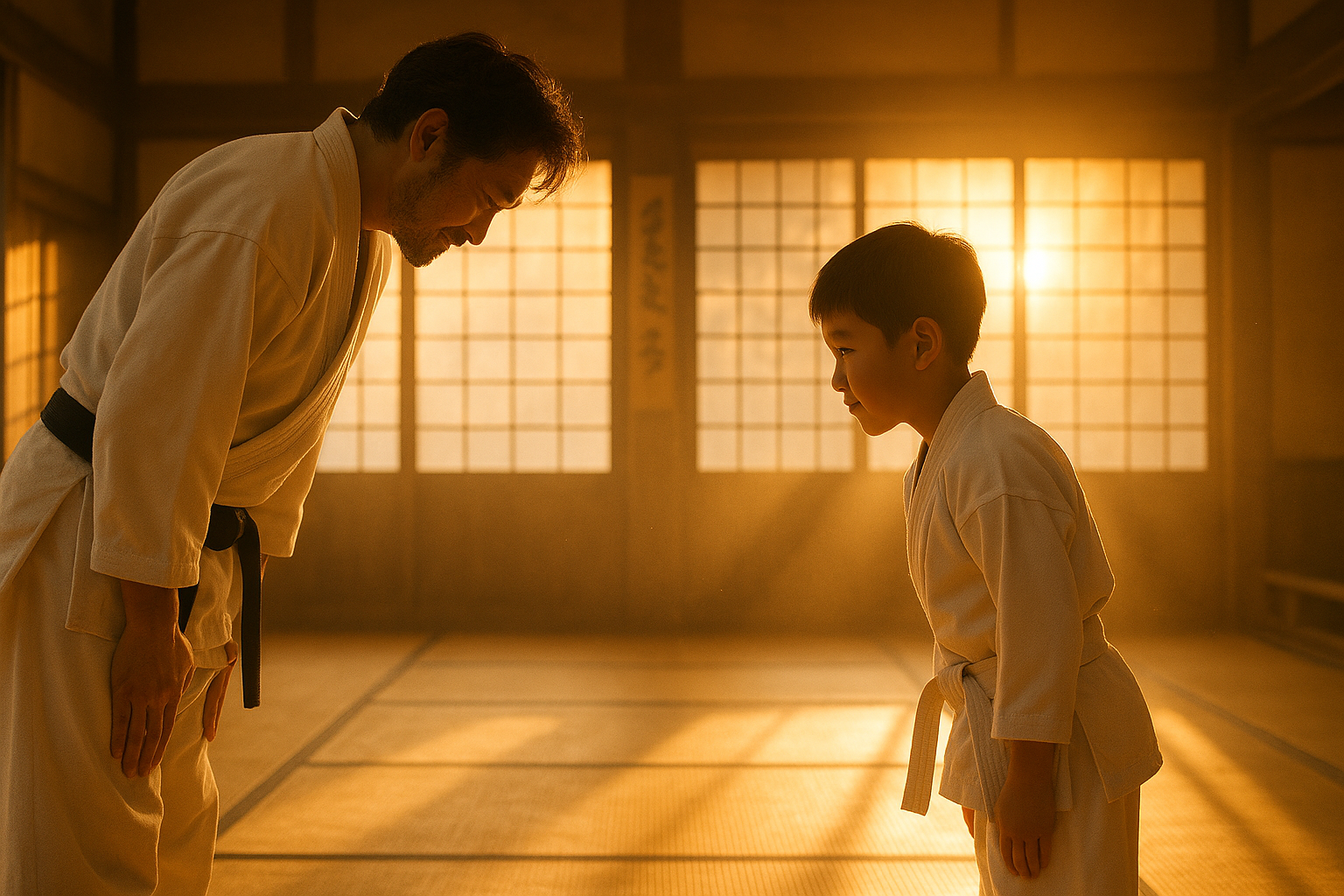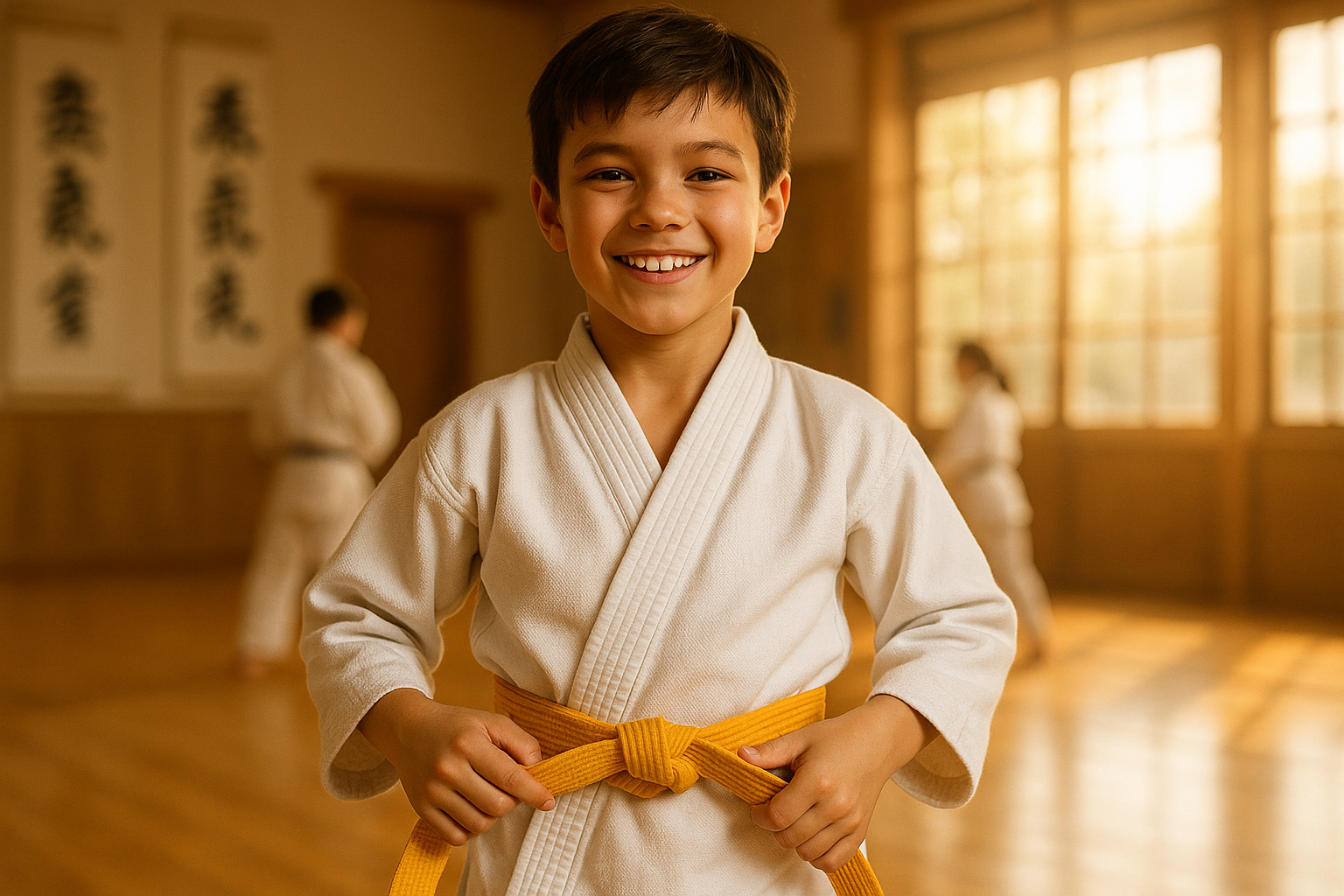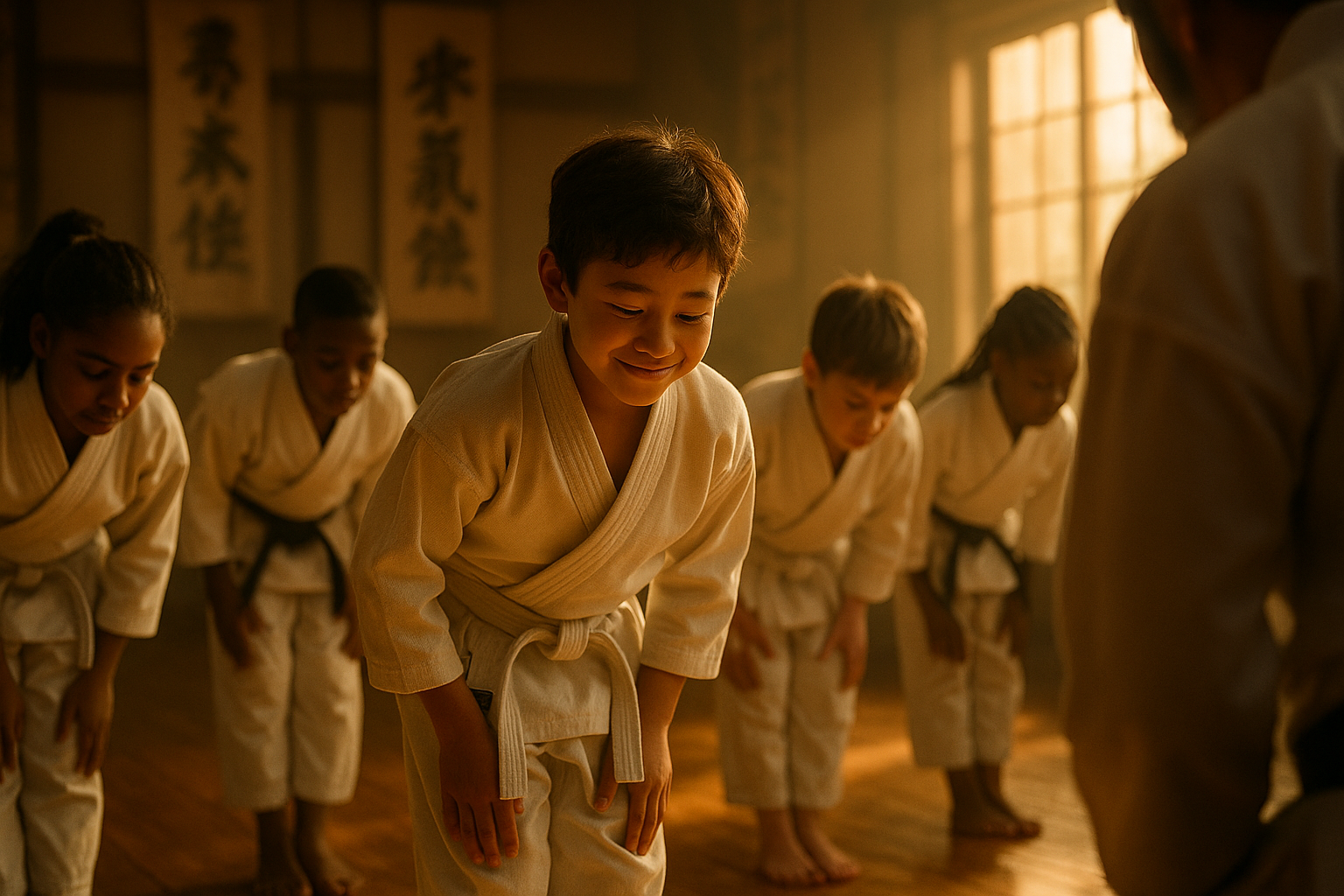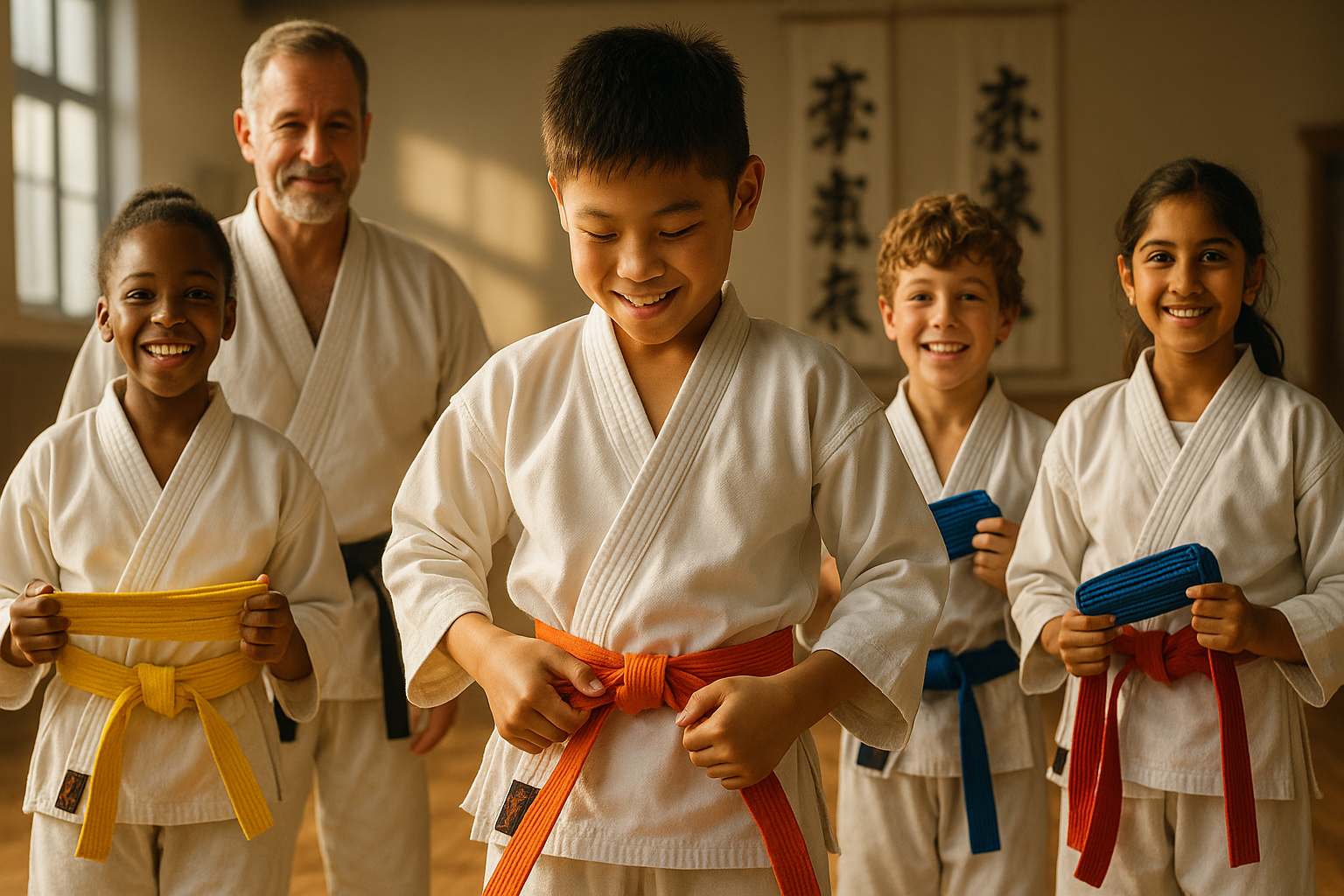The Secret Weapon Every Parent Needs to Know About: How Martial Arts Transforms Kids Into Team Players (And Why This Changes Everything)
Look, I'm going to be straight with you here.
Most parents are completely missing the boat when it comes to teaching their kids teamwork.
They think throwing their child into soccer practice or forcing them to work on group projects at school is going to
magically turn them into cooperative little angels.
It doesn't work that way.
And here's why: Those activities focus on the WRONG things.
Soccer? It's all about winning and losing. Group projects? Half the kids do nothing while one kid does all the work. Sound
familiar?
But martial arts? That's a completely different animal.
Here's What Nobody Tells You About Martial Arts and Teamwork
When most people think about martial arts, they picture some kid breaking boards or doing fancy kicks by themselves.
They're missing the BIGGEST benefit of all.
See, while your kid is learning how to throw a proper punch or execute a perfect kick, something else is happening.
Something that's going to change how they interact with people for the rest of their lives.
They're learning to work as a team in ways that most kids never experience.
And I'm not talking about some feel-good, participation-trophy nonsense here. I'm talking about REAL cooperation skills
that actually matter in the real world.
The "Partner Drill" Secret That Changes Everything
Here's where it gets interesting.
In martial arts, kids don't just practice techniques on their own. They work with partners. Constantly.
And these aren't just any partners – they're working with kids of different skill levels, different ages, different personalities.
This is where the magic happens.
When your 8-year-old is paired with a 12-year-old who's been training for three years, something incredible occurs. Your kid has to learn to communicate clearly, listen carefully, and adapt their approach.
They can't just bulldoze their way through like they might on a playground.
They have to COOPERATE.
But here's the kicker – it's not forced cooperation. It's natural. It happens because it HAS to happen for them to succeed.
Why This Beats Every Other "Team Building" Activity
Let me tell you what makes martial arts different from every other activity your kid could be doing.
First: There's no bench. Every kid participates. Every kid matters.
Second: Success isn't measured by beating the other team. It's measured by helping each other improve.
Third: The older, more experienced kids are expected to help the younger ones. This creates a culture where cooperation
isn't just encouraged – it's required.
I've seen shy kids who wouldn't speak up in class become confident leaders who help their training partners master
difficult techniques.
I've watched aggressive kids who used to push others around learn to control their strength and work gently with smaller
partners.
This stuff doesn't happen overnight, but when it does happen, it's permanent.
The Respect Factor (This Is HUGE)
Here's something that'll blow your mind.
In martial arts, kids learn to bow to their partners before and after every drill. They learn to say "thank you" when someone
helps them with a technique.
Sounds simple, right?
Wrong.
This simple act of showing respect creates something that most kids never experience in other activities: genuine
appreciation for their teammates.
When your kid bows to their partner, they're acknowledging that this person is helping them get better. They're recognizing that their success depends on someone else's willingness to work with them.
This isn't some ancient tradition that doesn't matter anymore. This is psychological conditioning that creates better
human beings.
The "Mutual Success" Mindset That Changes Everything
Most activities teach kids that for them to win, someone else has to lose.
Martial arts flips this on its head.
In partner drills, both kids succeed when they help each other improve. When one kid helps their partner perfect a technique, they're also getting better at teaching and communicating.
When a more advanced student works with a beginner, they're reinforcing their own knowledge while helping someone else grow.
Everyone wins. Always.
This creates a mindset that most adults never develop: the understanding that helping others succeed doesn't diminish
your own success – it enhances it.
Real Stories From Real Parents (This Stuff Actually Works)
Sarah told me her 9-year-old son Jake was the kid who always wanted to do everything himself. Group projects at school were a nightmare because he'd rather fail than work with others.
Six months into martial arts training, his teacher called to ask what had changed. Jake was suddenly volunteering to help struggling classmates and working beautifully in group settings.
What happened?
Jake learned through martial arts that working with others didn't make him weaker – it made him stronger.
Mike had the opposite problem. His daughter Emma was so shy she'd barely speak to other kids. She'd hide behind him at birthday parties and refuse to participate in team activities.
After a year of martial arts, Emma was helping newer students learn basic techniques and had become one of the most encouraging voices in her class.
The transformation was incredible.
The Communication Skills They Don't Teach in School
Here's something most parents don't realize: martial arts teaches kids to give and receive feedback in ways that actually help.
When your kid is working with a partner on a technique, they have to learn to say things like:
"Try moving your foot a little more to the left."
"That was really good – maybe just bend your elbow a bit more."
"I'm having trouble with this part – can you show me again?"
This is advanced communication stuff.
They're learning to be specific, constructive, and encouraging all at the same time.
These are skills that most adults struggle with in the workplace.
The Leadership Development Nobody Talks About
As kids advance in martial arts, something interesting happens. They start helping newer students.
But this isn't just "big kid helps little kid" stuff. This is structured leadership development.
Advanced students learn to:
• Break down complex techniques into simple steps
• Encourage students who are struggling
• Demonstrate patience when someone doesn't get it right away
• Take responsibility for their partner's success
These are executive-level skills.
And your kid is learning them at age 10.
Why the "Dojo Culture" Makes All the Difference
The martial arts environment is carefully designed to promote cooperation and mutual respect.
There are clear rules about how students interact with each other. There are consequences for being disrespectful or unsupportive.
But more importantly, there are rewards for being helpful, encouraging, and cooperative.
Kids quickly learn that the students who get promoted fastest aren't necessarily the most talented – they're the ones who
help create a positive training environment for everyone.
This is life-changing stuff.
The Confidence Connection
Here's something that might surprise you: kids who learn to work well with others become more confident individuals.
When your child knows they can communicate effectively, give helpful feedback, and contribute to a team's success, they
feel more secure in social situations.
They're not worried about being left out or not knowing what to do. They have the skills to jump in and make things better
for everyone.
This confidence carries over into everything they do.
The Long-Term Impact (This Is Where It Gets Really Good)
Kids who develop strong teamwork and cooperation skills through martial arts don't just become better students or athletes.
They become better employees, better friends, better partners, and better parents.
They understand that success in life isn't about individual achievement – it's about building others up and working together toward common goals.
These are the kids who become leaders in whatever field they choose.
What This Means for Your Child's Future
Think about the most successful people you know. I'll bet they all have one thing in common: they know how to work well with others.
They can communicate clearly, show respect for different viewpoints, and help others succeed.
These aren't skills you can learn from a textbook or a YouTube video. They have to be practiced, over and over, in real
situations with real consequences.
Martial arts provides that practice.
The Bottom Line
Your child is going to spend their entire life working with other people. In school, in sports, in their career, in their relationships.
The kids who learn early how to cooperate, communicate, and contribute to a team's success have a massive advantage over those who don't.
Martial arts doesn't just teach your child how to defend themselves physically. It teaches them how to work with others, support their teammates, and create positive environments wherever they go.
This is the kind of education that changes lives.
And here's the best part: your kid will think they're just having fun learning cool techniques.
They won't even realize they're developing the teamwork and cooperation skills that will serve them for the rest of their lives.
That's the beauty of martial arts training.
It builds character while building confidence. It teaches cooperation while teaching self-defense. It creates leaders while creating team players.
Most importantly, it gives your child the tools they need to succeed in a world that demands both individual excellence and the ability to work well with others.
That's a combination that's pretty hard to beat


